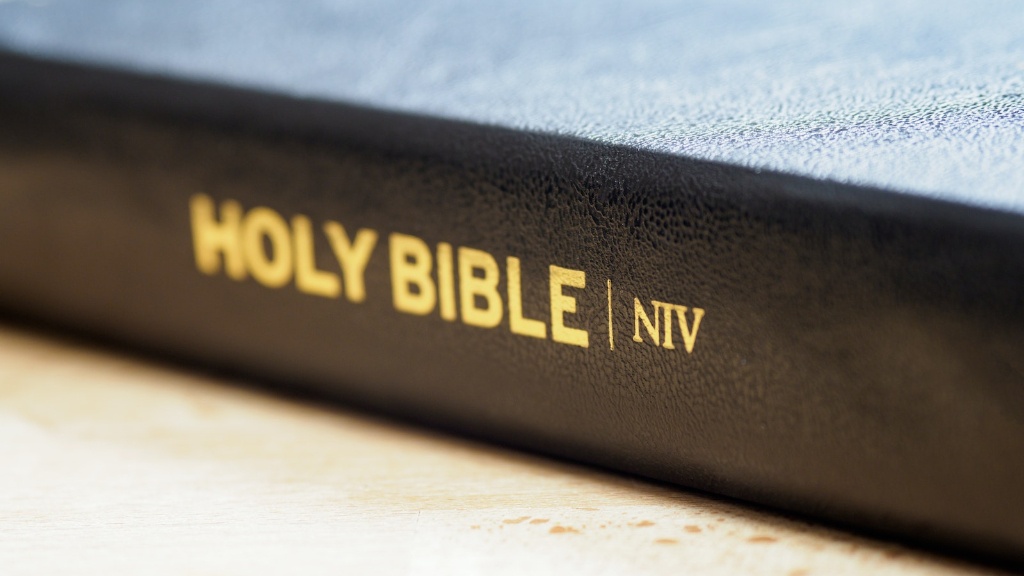The Bible offers two wildly different interpretations of how old the earth is
When attempting to answer the question of how old the earth is, the Bible offers two vastly different interpretations. Depending on which interpretation is accepted, the age of the earth can range from thousands of years to billions of years.
The Young Earth View, also known as the Literal View or the Biblical View, is held by most fundamentalist evangelicals and conservative parties around the world. This interpretation states that the earth is around 6,000 years old; this estimate is based on a literal interpretation of the Bible and its genealogies.
On the contrary, there is the Old Earth View. This view recognizes that the earth may have formed millions of years ago, with human life appearing tens of thousands of years ago. Scientific evidence and geological research are essential tools in uncovering the age of the earth, and in turn our own evolution as a species.
Proponents of the Old Earth View stand by the belief that a literal interpretation of the bible and its creation story is not compatible with modern-day science. This view posits that the days of creation are figurative and should not be interpreted as literal days. The narrative of the creation story, they argue, is more a story of our spiritual union with God.
The debate of the ages continues to stir up controversy. Young Earth Evangelicals in particular take a hard stance on the issue. As recently as last year, Geocentricity, a form of Young Earth Creationism supporting the notion that the sun revolves around the earth, was proposed to several schools in the United States for their science curriculum.
The disagreements between these two interpretations are not new, and the crux of the debate has barely changed. Supporters of a Young Earth View cling to the notion that the Genealogies are linked to a Six Day Creation Event, while Old Earth Supporters recognize that more time is necessary for all the aspects of creation including geological and biological development.
Despite all of this, the Bible makes no explicit reference to the age of the earth, either in its genealogies nor in its creation narrative.
Are Adam & Eve the first humans?
The discussion of the earth’s age is inextricably linked to the identity of Adam & Eve. According to the Old Earth View, fossils of earlier hominids should not be discounted and centuries of evolution should be taken into consideration.
The Young Earth View counters this and insists that Adam & Eve are the first humans and were created separately by God in a way that defies scientific proof. This position is paradoxical—it takes a century old scientific discovery and argues that it is wrong.
It’s interesting to note that while there are several references to Adam & Eve in the Old Testament, there is no genealogical evidence linking them to the creation event. To make up for this lack of scientific evidence, Young Earth Evangelicals point to a literal interpretation of the bible, dismissing scientific proof completely.
Regardless of opinion, it’s clear that the comparison between science and the Bible has been the source of strife for millennia. This comparison likely won’t be ending anytime soon.
What did Jesus say about the age of the Earth?
In Matthew 19:4-5 Jesus confirms that “in the beginning” God created Adam and Eve and He also states that a man is supposed to “leave his father and mother” to marry a woman.
This suggests that Jesus, who is believed to be both human and divine, accepted the conventional view of creation found the Pentateuch—creation in the beginning, not billions of years ago. Even though Jesus does not make any explicit reference to the age of the earth, biblical scholars agree that this passage provides more evidence to suggest a Young Earth interpretation.
Jesus’ remarks on the creation of the world were not based on scientific evidence. Rather, they were based on faith and his own personal conviction.
How other scriptures view the age of the Earth
The New Testament is not the only Christian source that speaks about creation; much of the Old Testament does so as well. The Book of Job, for example, tells the story of a man who undergoes a series of hardships and trials. In Job 38:4-7, God speaks to Job and says, “Where were you when I laid the foundation of the earth?” While this verse does not provide a concrete answer as to the age of the earth, it does imply that God created the universe and by extension, the earth. Furthermore, it suggests that God’s knowledge of the earth is both grand and complete.
Psalm 90:2-4 indicates that the earth has endured for an unfathomably long period of time and will continue to exist for eternity: “Before the mountains were born or you brought forth the whole world, from everlasting to everlasting you are God.”
Core message of the Bible is not about age of the Earth
Ultimately, the Bible does not focus on the age of the earth, as this is merely a backdrop to the greater story that it tells. The core message of the Bible is one of hope and redemption, renewed by sacrifice and grace. In this sense, time loses its meaning, as the deeds of our Savior have no expiration date.
That said, the interpretation of scripture is an important and necessary task. Scriptural interpretation is a complex process, and the age of the earth is a component of this. Both the Young Earth View and the Old Earth View are viable interpretations of the Bible, regardless of which stance one takes.
Analysis and Reflection
The debate between the Young Earth View and Old Earth View is a debate that has been ongoing since the early days of Christianity. Both sides of the argument offer valid points, and both have passionate adherents who are unwilling to give in.
Despite this divisiveness, one thing remains clear; the Bible does not confirm the exact age of the earth and the age of Earth is not the Bible’s main focus. Instead, the Bible aims to remind us of our purpose in life and our relationship with God. Thus, we should turn our attention away from this debate and towards a greater understanding of God’s word.
The Debate Today
The debate between the two interpretations continues to rage and can often be a point of contention between believers and non-believers. Scientific and geological evidence continues to be cited by proponents of the Old Earth View and held as proof that the earth is not 6,000 years old.
But this evidence is often disregarded by he Young Earth View adherents, who hold fast to the belief that the Genealogies are linked to a six-day creation event. In many cases, proponents of the Old Earth View are considered “heretics” and the debate between the two organizations is usually fraught with tension.
The debate over the age of the earth will surely continue, but, at the core of it all, both interpretations hold the same goal; to reconnect humankind with God. Ultimately, both views attempt to honor the truth of the Bible in its own special way, making this debate the source of thought-provoking and spirited conversation.
The Nature of Science & Spirituality
At the end of the day, we must recognize that science and spirituality are two entirely different ways of interpreting the world. While we cannot reconcile the two, we can honor and learn from both. This can help us gain a greater understanding of our relationship with God and a deeper appreciation of the physical world.
It’s easy to get caught up in the back and forth between the two sides. However, the age of the earth is ultimately less important than the story the Bible tells us of humankind’s relationship with the Divine. In that sense, we must focus more on understanding how we can honor the spiritual truths in scripture rather than asking how old the earth is.
A Model of Respect & Community
Finally, whichever side we may choose, we must uphold the model of respect and understanding even in the midst of disagreement. We should recognize that our differing interpretations can coexist without resorting to personal attacks. After all, we are all united by a single vision: to honor the words of the Bible and embrace its stories.
Ultimately, we should focus more on the core message of the Bible and recognize that its interpretation should be based on an individual’s experiences, understanding, and spiritual journey. Not the age of the earth.





